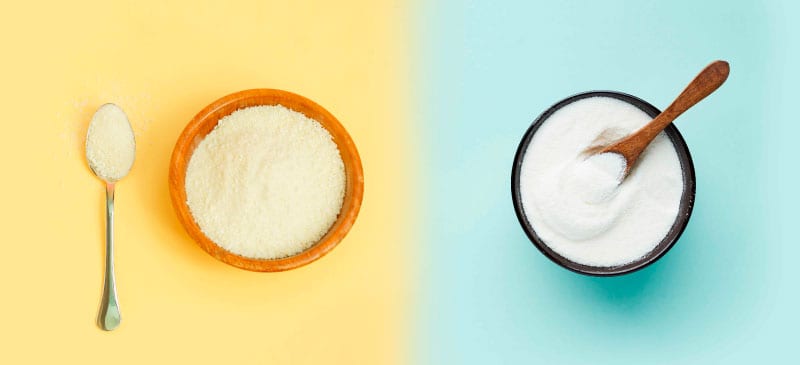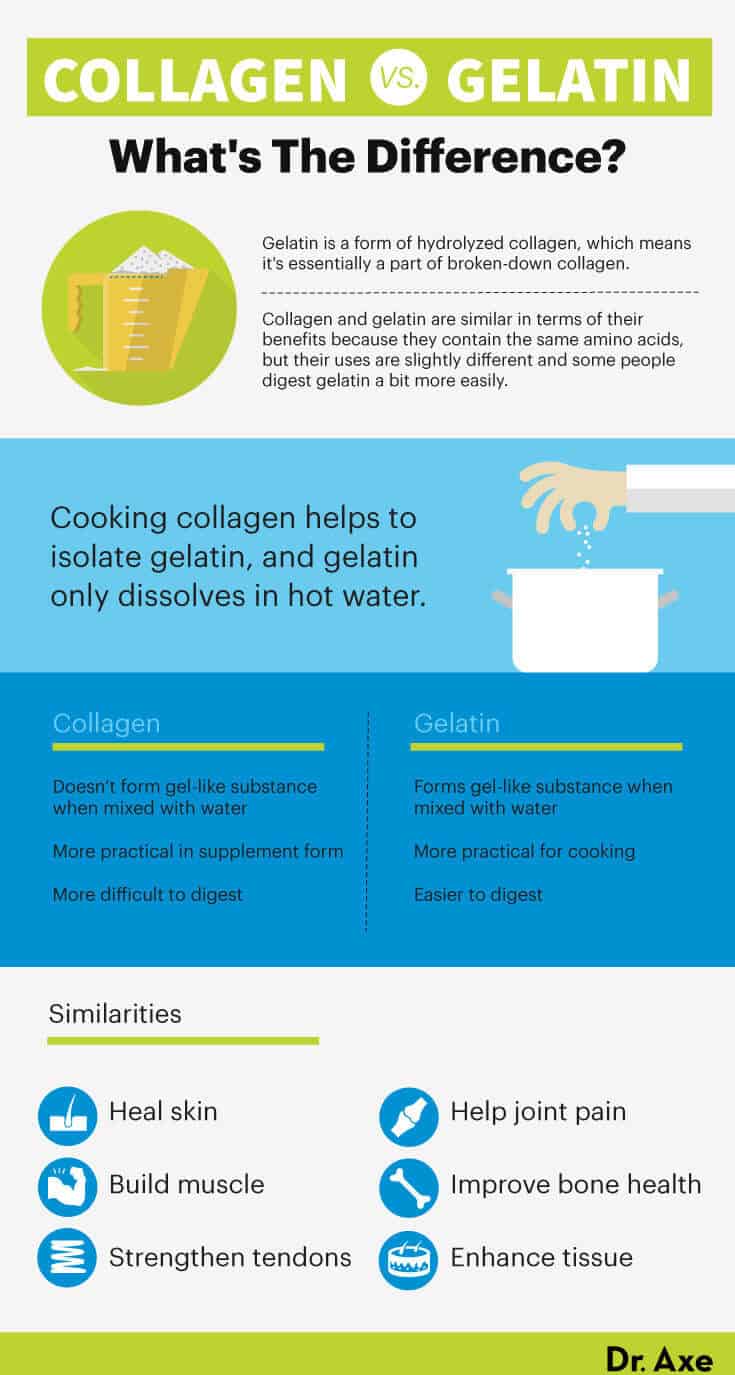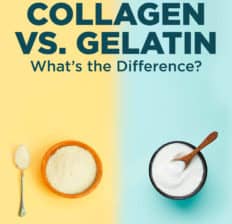This Dr. Axe content is medically reviewed or fact checked to ensure factually accurate information.
With strict editorial sourcing guidelines, we only link to academic research institutions, reputable media sites and, when research is available, medically peer-reviewed studies. Note that the numbers in parentheses (1, 2, etc.) are clickable links to these studies.
The information in our articles is NOT intended to replace a one-on-one relationship with a qualified health care professional and is not intended as medical advice.
This article is based on scientific evidence, written by experts and fact checked by our trained editorial staff. Note that the numbers in parentheses (1, 2, etc.) are clickable links to medically peer-reviewed studies.
Our team includes licensed nutritionists and dietitians, certified health education specialists, as well as certified strength and conditioning specialists, personal trainers and corrective exercise specialists. Our team aims to be not only thorough with its research, but also objective and unbiased.
The information in our articles is NOT intended to replace a one-on-one relationship with a qualified health care professional and is not intended as medical advice.
Collagen vs. Gelatin: What’s the Difference?
October 17, 2022

Collagen and gelatin have become two of the hottest supplements in the health world. Not only do both boast a long list of health benefits, but they can also each be used in a variety of recipes, ranging from soups to sweets and beyond. However, although the two share many similarities, many people are unsure about what factors distinguish collagen vs. gelatin and which one is a better option.
So what is the difference between collagen vs. gelatin? Keep reading for everything you need to know about these two common supplements, along with some simple ways to get your fix of both.
Collagen vs. Gelatin
Gelatin is a form of hydrolyzed collagen, which means it’s essentially a part of collagen that has been broken down. Collagen is the most abundant protein in the body and is a major component of the connective tissue, making up about a quarter of our total body mass.
Collagen is a key builder of healthy skin, muscle, tendons, joints, bones and other tissues in both humans and animals, so when we don’t produce enough, our health can take a major hit. Within the body, collagen goes through a series of steps to break down its long-chain proteins into its original amino acids, which are then absorbed and used for collagen synthesis throughout the body.
Collagen and gelatin are similar in terms of their benefits because they contain the same amino acids. However, their uses are slightly different, and some people digest gelatin a bit more easily.
Cooking collagen helps isolate gelatin, and gelatin only dissolves in hot water. It forms a gel-like substance when mixed with water, whereas collagen does not. This means that gelatin might have more practical uses when cooking, such as making your own jellies or thickening sauces.
To convert collagen from animal parts into gelatin, several processes are used that break the bonds of collagen and release certain amino acids. Extraction of gelatin in food manufacturing is usually done using hot water and acid solutions to hydrolyze collagen into gelatin. Then certain filtration, clarification and sterilization processes usually take place to form the dried, final product, depending on how it’s sold.
As with most foods or supplements, the less processing it goes through the better it is for your health. Gelatin degradation is minimized most by deriving gelatin at the lowest temperature possible, which allows it to hold on to the natural peptide structure that provides its benefits.

Benefits
Although there are a few key differences between collagen peptides vs. gelatin, both have been associated with several potential health benefits. Here are a few of the top ways that these superstar supplements can impact your health.
1. Decrease Joint Pain
Joint pain and inflammation are two of the main symptoms that many people experience as collagen production starts to decline. Fortunately, several studies have found that supplementing with collagen or gelatin can reduce joint pain, improve mobility and decrease the risk of joint deterioration over time.
Not only that, but collagen could also provide relief for those suffering from rheumatoid arthritis, which is a type of autoimmune disorder characterized by pain and swelling in the joints.
In fact, one study published in the journal Science showed that taking a collagen supplement was effective at improving swollen and tender joints in those with rheumatoid arthritis and was even able to help induce remission in several participants.
2. Promote Gut Health
Promising research suggests that both collagen and gelatin could help treat leaky gut syndrome, a condition in which toxins and particles pass from the digestive tract into the bloodstream, triggering widespread inflammation throughout the body.
Not only can gelatin and collagen reduce intestinal inflammation, but they may also strengthen the barrier of the digestive tract to help optimize gut health.
However, keep in mind that one of the key differences between gelatin vs. collagen is in terms of digestibility. Gelatin and hydrolyzed collagen both have low molecular weights and may be easier for your body to absorb if you have any digestive issues.
3. Support Glowing Skin
Because collagen plays a central role in skin health, boosting your intake through supplementation could help reverse signs of aging to keep your skin glowing and smooth.
In one study, taking collagen peptides daily for eight weeks improved skin elasticity and moisture with no adverse side effects. Another study out of London had similar findings, reporting that using a collagen supplement was able to counteract signs of aging by increasing skin firmness and reducing wrinkles and dryness.
4. Reduce Hunger
Nutritionally, there are many similarities between gelatin vs. collagen, especially in terms of protein content. In fact, both are composed mostly of protein, packing a range of essential amino acids into each serving.
Protein is important for many aspects of health, especially when it comes to keeping cravings under control. In addition to promoting satiety and decreasing overall caloric intake, studies also show that protein can help lower levels of ghrelin, the hormone responsible for stimulating feelings of hunger.
Plus, according to a 2008 study out of Brazil, gelatin could even increase levels of glucagon-like peptide-1 (GLP-1), an important hormone that controls hunger and appetite.
5. Strengthen Bones
Although there are a few slight differences between gelatin vs. collagen peptides, both contain many of the nutrients needed to support bone health.
Copper, in particular, is an important mineral found in both supplements that has been linked to improved bone health. In fact, one study conducted in China found that abnormal levels of copper in the blood could be tied to an increased risk of fractures and decreased bone density.
What’s more, other research also suggests that collagen hydrolysate could be beneficial for the treatment of issues like osteoarthritis and osteoporosis. A study by Case Western Reserve University showed that daily supplementation could reduce pain in those with osteoarthritis of the knee or hip and may also block the breakdown of bone collagen to support bone health.
Related: Beef Gelatin: What Are the Benefits & How Does It Compare to Collagen?
How to Use
Both gelatin and collagen are widely available in supplement form and are highly versatile. Try mixing hydrolyzed gelatin powder or collagen peptides into drinks, smoothies, soups and stews to ramp up the health benefits and nutritional value of your favorite recipes.
The recommended dosage can vary quite a bit depending on your specific supplement and whether you choose to take collagen hydrolysate vs. gelatin, but it’s generally recommended to stick to around 10–20 grams of collagen at a time.
Gelatin also works well for cooking and can be found in sheet or powdered form. Be sure to soak gelatin in cold water for a few minutes before using in recipes like desserts, jellies, candies, soups and sauces.
You can also get your fix by brewing up a batch of bone broth at home. Instead of discarding the bones of your meat, simply add them to a slow cooker with some water, and simmer for 24–48 hours before skimming the fat and straining out any solids.
Alternatively, try using a bone broth supplement for a quick and convenient way to boost your intake.
Risks and Side Effects
Regardless of whether you decide to use gelatin vs. collagen, there are very few side effects to consider. For most healthy adults, either supplement can be safely consumed as part of a healthy diet.
If you have any food allergies, it’s important to check food labels carefully to ensure that you’re able to tolerate all of the ingredients. Certain supplements may be sourced from fish, shellfish, poultry or beef, so exercise caution if you have an allergy or intolerance to any of these ingredients.
Although many supplements are unflavored, they are not always flavorless and may leave an unpleasant or off-putting taste in your mouth, no matter whether you choose to take gelatin vs. collagen. However, adding powdered supplements to drinks or smoothies can help mask the flavor and make it much more tolerable.
Final Thoughts
- There are several similarities between collagen vs. gelatin, along with a few notable differences as well.
- The main difference between gelatin vs. collagen is in terms of processing. Gelatin is a type of collagen that has been broken down, making it a bit easier to digest and absorb.
- However, there are many similarities between gelatin vs. collagen as well. In fact, both contain a comparable nutrient profile and offer a similar set of benefits.
- In particular, collagen and gelatin may both help reduce joint pain, promote gut health, reverse signs of aging, decrease hunger levels and strengthen the bones.
- Gelatin is more suited for cooking in dishes like jellies, soups, candies and desserts, but both are also widely available in supplement form and can be mixed into drinks or smoothies.









